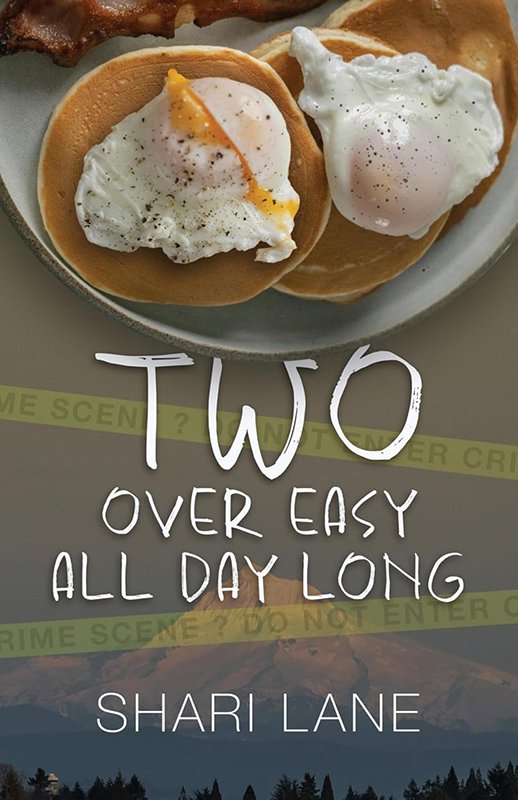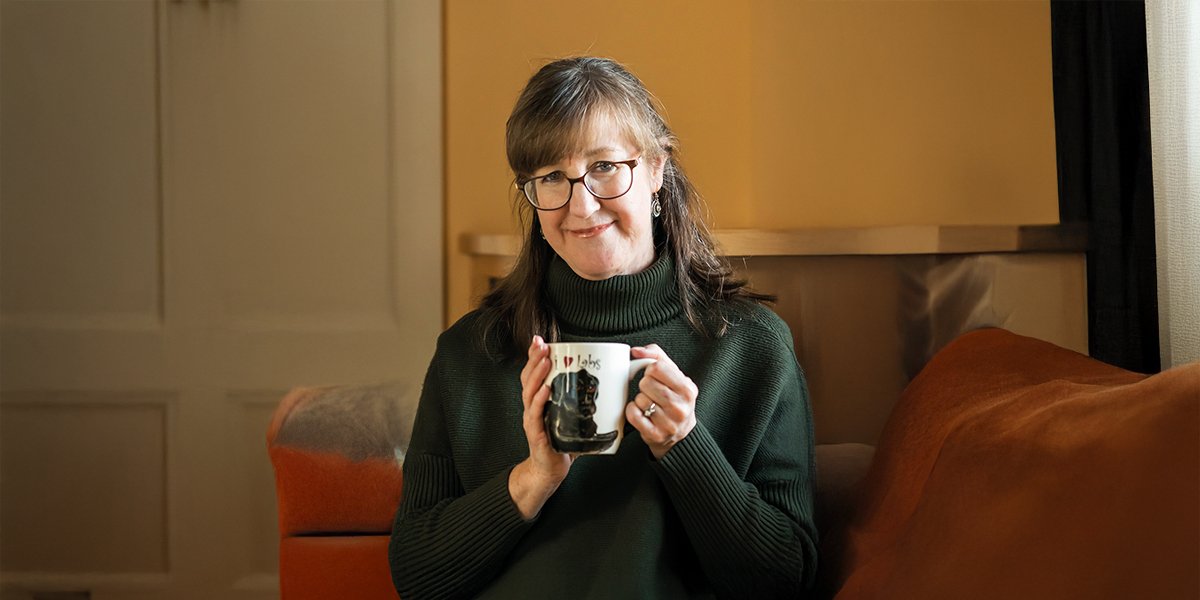Reimagining Classic Tales with a Bold New Voice
Shari Lane discusses Two Over Easy All Day Long, her passion for justice, and the transformative power of storytelling. She reflects on law, literature, and how fiction fosters empathy and human connection.
Shari Lane is a storyteller of extraordinary depth and vision, a writer whose words are as thought-provoking as they are heartfelt. With a remarkable ability to blend incisive social commentary with engaging narratives, she crafts stories that linger in the mind and stir the soul. Her latest novel, Two Over Easy All Day Long (Golden Antelope Press, 2024), is a powerful exploration of justice and accountability, offering readers an imaginative yet deeply relevant take on restorative justice. It is precisely the kind of novel that makes one reconsider the structures of power, privilege, and fairness in our society.
Beyond her latest release, Lane’s literary journey is as diverse as her life experiences. From the whimsical yet subversive The UnFairy Tales series to the evocative What the Dogs Know, she demonstrates an exceptional range—writing that entertains, enlightens, and challenges assumptions. Her passion for storytelling is matched by her commitment to the literary world, whether as a former managing editor of SHARK REEF Literary Magazine, a host of WORD! open mic events, or an advocate for libraries and community engagement.
With a background spanning law, education, and advocacy, Lane brings a rare authenticity to her fiction. She does not merely write about justice—she has lived it, fought for it, and sought to understand its complexities. Her characters, shaped by this wealth of experience, grapple with real-world dilemmas, evolving in ways that reflect the transformative power of empathy.
In this Reader’s House interview, Lane shares insights into her writing process, her inspirations, and the themes that drive her work. Whether exploring the power of redemption, the subversion of traditional fairy tales, or the interconnectedness of humanity, she is a writer whose voice is both urgent and necessary in today’s literary landscape.
Shari Lane masterfully weaves social consciousness into compelling narratives, creating unforgettable characters and stories that challenge, inspire, and ignite thoughtful reflection.
What inspired you to write Two Over Easy All Day Long, and how did you develop its unique premise?
When I started writing this book I was still actively practicing law. I’d heard a lot of talk about restorative justice, and alternative sentencing, and I was immediately intrigued, wondering what our communities would look like with a focus on accountability and restoration rather than solely focused on punishment.
The result of my ponderings was a story in which a judge decides this corporate defendant won’t be allowed to sweep aside the consequences of his actions simply by virtue of his wealth and privilege; this defendant is going to experience firsthand what it feels like to be powerless, to walk in the shoes of a minimum-wage worker who can never be sure, from paycheck to paycheck, that there will be enough.
Interestingly, there was a recent real-life example of this kind of sentencing: in 2023, a woman who threw her food at a server in a fast food restaurant was sentenced to jail but allowed to waive some of the time if she agreed to work at least 20 hours per week at a fast food restaurant.
Reading the article I thought: how marvelous!
How does your background in law and teaching influence your storytelling and character development?
Our education system is founded on the idea that people can grow, can become better versions of themselves, if their curiosity is nurtured, their knowledge base expanded, and their perspective broadened. I’ve often said my characters come to me with a story to tell, and I always hope that the story they’re going to reveal is one of transformation and redemption, that the assumptions and prejudices they harbor will disintegrate as they begin to see the world through a different lens.
I’ve experienced poverty myself; I had a short stint practicing bankruptcy law; I was on the board of a Head Start organization serving primarily the children of migrant and seasonal farmworkers; I was part of a local food bank organization; and I served as an arbitrator for court-ordered arbitration (which often involved debt-collection from a defendant who had little or no ability to pay). In other words, I’m keenly aware of some of the effects of income inequality and the imbalance of power.
Finally, as a lawyer, I became aware of the limitations of our justice system, which pits the parties against each other, creating winners and losers. Our criminal justice system, while far better than the alternative, counts incarceration as a “win.” Civil litigation, too, while sometimes absolutely necessary for accountability, leaves both sides licking their wounds.
Putting together my life experiences and work history, when writing Two Over Easy All Day Long I couldn’t help but imagine a world in which the courts had the same goals as schools.
“You may say I’m a dreamer…” You’d be right, of course. “I hope someday you’ll join us.”
“I couldn’t help but imagine a world in which the courts had the same goals as schools.” – Shari Lane
As the former managing editor of SHARK REEF Literary Magazine, what did you look for in a compelling submission?
I looked for a story arc that made me want to keep reading, that made me care about what happens to the characters. I wanted the characters to experience some growth or evolution over the course of the story, not just a dreary reflection of the real world. I looked for piercing phrasing that stayed with me long after I’d finished, without being too self-consciously “literary.” And I looked for polish: an occasional typo is inevitable, but I couldn’t even finish a story that was riddled with careless errors. Last but not least, a chuckle or two never went amiss.
The UnFairy Tale takes a fresh approach to classic fairy tale elements—what drew you to subverting these tropes?
I love quirky new imaginings of old tropes: the girl gets to be a strong and sassy hero instead of a wilting wallflower; the boy is timid or curmudgeonly or both; (the queer or non-binary character is unique and not a stereotype); the magical animals confess to laziness instead of being enthusiastic for adventure. Wicked and the picture book The Paper Bag Princess come to mind, along with the Narnian Chronicles. When writing middle school novels “subversion” was an easy choice!
Your work often explores themes of justice, compassion, and human connection. What do you hope readers take away from your stories?
I believe “We are all connected” is not just a meme, it’s an existential truth. All of creation is as interdependent as limbs on a single body. We seem to be constantly in a state of learning, forgetting, and then re-learning that. Once we recognize our interconnectedness, empathy and justice will arise organically, because how can you perpetrate an injustice upon your own arm, your own leg? That’s my philosophy, but I write fiction, for the simple reason that I think our best hope of discovering our interconnectedness is through seeing other perspectives. Wiser souls than I have studied fiction and found it is one of the best vehicles for engendering empathy. Ultimately, I want readers to come away from my stories with new perspectives, and a belief in the possibility of redemption—not in a religious sense, but in the sense of trading anger and prejudice and fear for empathy. I’d love to make them smile, maybe even give a joyful whoop of laughter when they realize it is possible to forge community wherever you are.
EDITOR’S CHOICE
A heartfelt, beautifully written novel with rich characters, sharp dialogue, and a touching exploration of redemption, resilience, and human connection.



